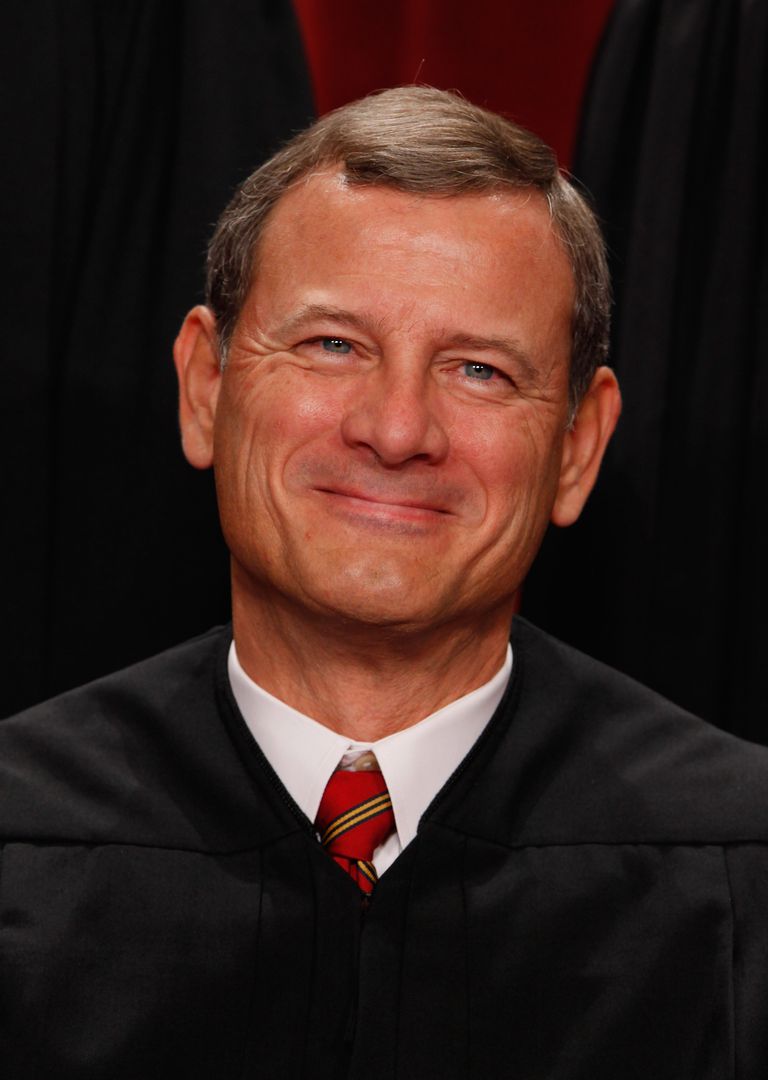Three Supreme Court Cases Under John Roberts: A Shifting Landscape Of Church And State

Table of Contents
Town of Greece v. Galloway (2014): Legislative Prayer and the Establishment Clause
This case concerned the constitutionality of legislative prayer before town meetings in Greece, New York. The prayers, delivered by invited clergy, were predominantly Christian, leading to a challenge arguing that the practice violated the Establishment Clause of the First Amendment.
The Case:
The plaintiffs argued that the town's practice of predominantly Christian prayer created an environment of exclusion and coercion for non-Christian residents, thereby violating the principle of government neutrality mandated by the Establishment Clause. They asserted that the town's actions endorsed religion, creating a hostile environment for those of different faiths or no faith.
The Ruling:
The Supreme Court, in a 5-4 decision, ruled that the town's practice did not violate the Establishment Clause. The majority opinion, written by Justice Samuel Alito, emphasized the historical context of legislative prayer in the American political tradition, arguing that such prayers had a long and accepted history. The Court held that the Establishment Clause does not require the government to be strictly neutral between religion and irreligion.
- The majority opinion heavily emphasized the historical context of legislative prayer, dating back to the founding of the nation.
- Dissenting justices, including Justices Kagan, Breyer, Ginsburg, and Sotomayor, argued that the town's practice created a clear preference for Christianity, effectively excluding and marginalizing non-Christian residents.
- The case raised fundamental questions about the appropriate balance between religious freedom and government neutrality, particularly within the context of local government practices.
- The Town of Greece decision remains a significant and often debated example of Church and State Supreme Court Cases impacting the understanding of the Establishment Clause.
Burwell v. Hobby Lobby Stores, Inc. (2014): Religious Freedom and the Affordable Care Act
This landmark case involved the Affordable Care Act's (ACA) contraception mandate and its impact on closely held for-profit corporations with religious objections. Hobby Lobby, a craft store chain, argued that the mandate, requiring employers to provide health insurance covering contraception, violated their sincerely held religious beliefs.
The Case:
Hobby Lobby and other plaintiffs argued that the ACA's contraception mandate substantially burdened their religious exercise, violating the Religious Freedom Restoration Act (RFRA) of 1993. They claimed that providing insurance covering contraception was directly contrary to their owners' deeply held religious beliefs.
The Ruling:
The Supreme Court, in a 5-4 decision, sided with Hobby Lobby, ruling that the contraception mandate imposed a substantial burden on the company's religious exercise and that the RFRA provided a compelling reason for an exemption. The Court found that the government had not demonstrated a compelling interest justifying the burden on religious exercise.
- The decision sparked a significant national debate about religious freedom in the workplace and the appropriate scope of the RFRA.
- Critics argued that the ruling potentially impacted women's access to healthcare and set a dangerous precedent for eroding workplace protections.
- This case highlighted the complexities of balancing religious freedom with other constitutional rights and societal interests, continuing to shape discussions about Church and State Supreme Court Cases involving religious freedom in the 21st century.
- The Burwell v. Hobby Lobby decision exemplifies the challenges in navigating the intersection of religious freedom and government regulation.
Carson v. Makin (2022): Religious Schools and Public Funding
This case challenged Maine's tuition assistance program, which allowed parents to use public funds to send their children to private schools but excluded schools that provided religious instruction. Parents of children who wished to attend religious schools challenged this exclusion, arguing it violated their religious freedom.
The Case:
The plaintiffs argued that Maine's program violated the Free Exercise Clause by discriminating against religious schools, thereby denying them equal access to public funding available to secular private schools. They asserted that this discriminatory practice unfairly penalized families seeking religious education.
The Ruling:
The Supreme Court ruled 6-3 in favor of the plaintiffs, holding that Maine's program violated the Free Exercise Clause by discriminating against religious schools. The Court reasoned that the state could not offer public funding for secular private schools while excluding religious schools.
- The Court's decision extended the principle of equal access to public funding to religious schools, setting a significant precedent.
- The ruling has implications for similar programs in other states and potentially affects the landscape of public funding for education.
- This case represents a continuation of the trend toward expanding religious freedom protections, as seen in other Church and State Supreme Court Cases under Chief Justice Roberts.
- Carson v. Makin significantly altered the conversation on the relationship between public funding and religious institutions.
Conclusion:
These three Supreme Court cases—Town of Greece v. Galloway, Burwell v. Hobby Lobby Stores, Inc., and Carson v. Makin—represent significant milestones in the ongoing evolution of church and state jurisprudence under Chief Justice John Roberts. They reveal a complex interplay between the Establishment Clause and the Free Exercise Clause, with rulings that often reflect a prioritization of religious freedom claims. Understanding these landmark Church and State Supreme Court Cases is crucial for comprehending the current legal landscape and the ongoing debate over the appropriate balance between religious liberty and government neutrality. Further research into these and other related cases is encouraged to fully grasp the nuances of this critical area of constitutional law. Staying informed about ongoing developments in Church and State Supreme Court Cases is vital for understanding the evolving relationship between faith and government in the United States.

Featured Posts
-
 Presiden Erdogan Di Indonesia Kerja Sama Strategis Ri Turkiye Terwujud
May 02, 2025
Presiden Erdogan Di Indonesia Kerja Sama Strategis Ri Turkiye Terwujud
May 02, 2025 -
 Sanchajuje 2027 Metais Duris Atvers Hario Poterio Parkas
May 02, 2025
Sanchajuje 2027 Metais Duris Atvers Hario Poterio Parkas
May 02, 2025 -
 Colorado Faces No 9 Texas Tech Toppins Performance A Key Factor
May 02, 2025
Colorado Faces No 9 Texas Tech Toppins Performance A Key Factor
May 02, 2025 -
 Bbc Funding Crisis 1 Billion Revenue Shortfall And Its Consequences
May 02, 2025
Bbc Funding Crisis 1 Billion Revenue Shortfall And Its Consequences
May 02, 2025 -
 Improving Workplace Productivity Through Effective Mental Health Policies
May 02, 2025
Improving Workplace Productivity Through Effective Mental Health Policies
May 02, 2025
